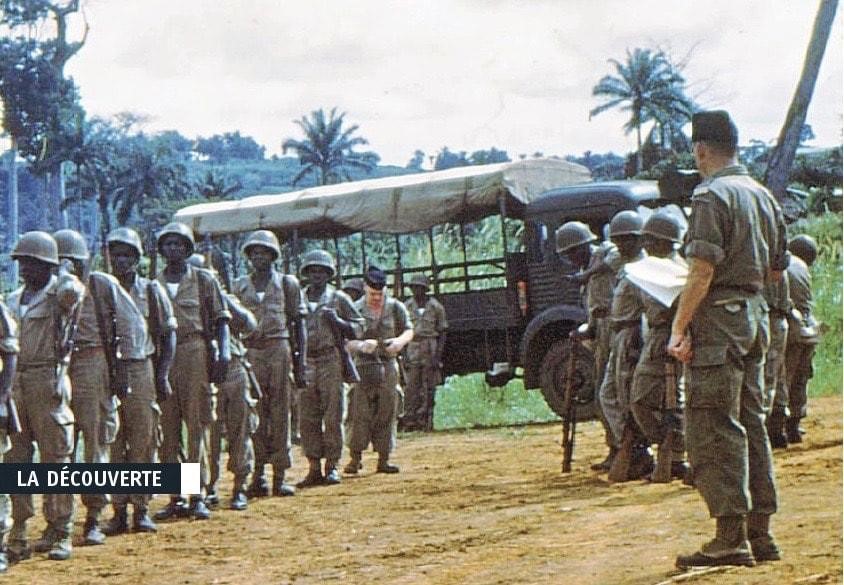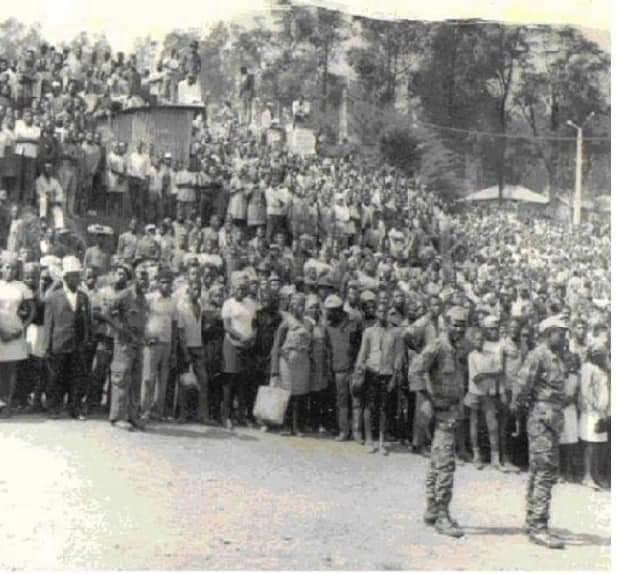
Mix regiment of French and Cameroonian Soldiers before the 1960
Why Remember the Bamileke Martyrs?

1. The history of genocide must be known
The Bamileke martyrs of the genocide of 1955-1971 are until today considered by history to be common criminals, and it is up to their descendants to redefine their legacy. The aim of this commemoration is to identify the goals of their fight, the circumstances of their genocide, and the responsibility of France. All of this is part of a project to retell the history of the Bamiléké people in their own words.
The history of the Bamileke genocide also has implications for the situation in Cameroon today. There are direct links between the impact of the genocide, the ongoing appropriation of the living space of the Bamileke, and the landslides to which they are victims of throughout Cameroon.
2. Funerals for the martyrs must be held
Bamiléké culture prescribes that after the death of an individual, the community holds a funeral for them. This funeral is composed of certain rituals which allow the dead to access the afterlife with ease in order to intercede for the living with God (SI’H).
But for those killed in the Bamileke genocide—including heads of families, eminent notables of the royal courts, kings, and people from all areas of society—these funerals were never held. This interruption of the spiritual and cultural requirements prescribed by Bamiléké customs has blocked our elders from becoming ancestors in our tradition, and it is therefore essential that we begin these funeral rites as soon as possible.


3. France must not be allowed to write the history of Cameroon
France has begun to write the history of its involvement in Cameroon by setting up a joint commission led by a French historian and a Cameroonian musician. We believe that France aims to rewrite the history of its war against Cameroon in order to disqualify any facts that could implicate it in committing genocide. France did not only take steps to mask and conceal the atrocities they committed against the Bamiléké people; it is today rewriting the history of these events to give the impression that the genocide it perpetrated was only a civil war between Cameroonians.
However, there is overwhelming evidence demonstrating that France not only instigated this war, but also worked to ensure that the Bamiléké people would be decimated in order to eliminate resistance to France’s exploitation of the mining and economic resources of Cameroon. These facts must be made known to the world so that France can be held accountable for its actions against the Bamileke people and all of Cameroon.

